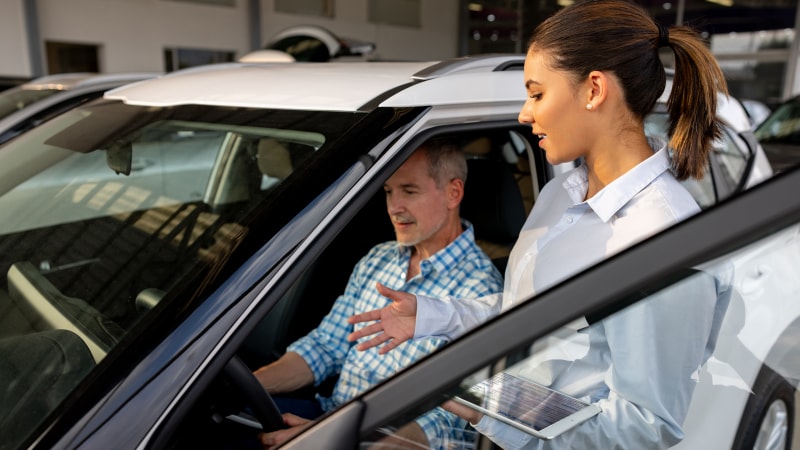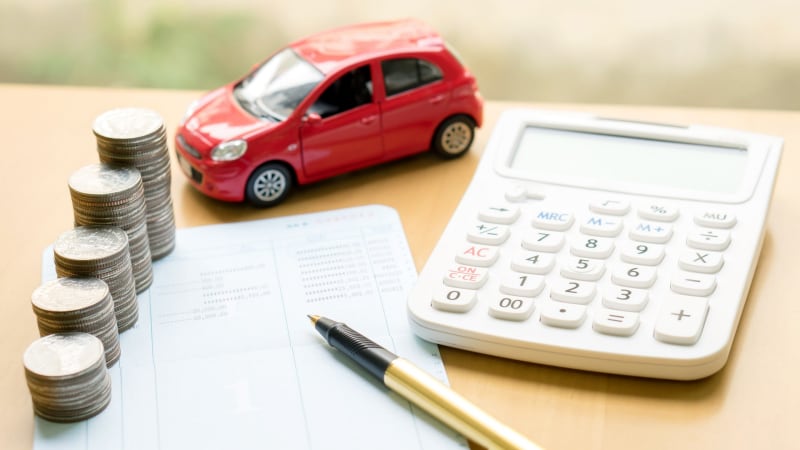Car loans with no down payment: What you need to know

Buying a car is exciting, but it comes with a (literal) cost. If you plan to finance your purchase, one of the first things you'll need to consider is making a down payment — a lump sum that represents a percentage of the car’s value, paid at the point of purchase. Making a down payment, however, isn’t always required. It’s possible to get a car loan with no down payment, meaning that you finance the entire deal upfront.
Do you have to put a down payment on a car?
A down payment when buying a car helps reduce the amount you need to borrow to cover the purchase. Typically, the bigger the down payment, the smaller the borrowed amount.
There may, however, be no actual obligation to make a down payment. In some circumstances, it may be possible to buy a car where the full purchase price is financed.
Why get no money down car financing?
There are many reasons buyers might consider no money down car financing. These include:
- Not having the cash on hand for a down payment. If a down payment is challenging but you need a car quickly, no money down car financing may be appealing.
- Wanting to use your available funds for different purposes, such as other large-ticket purchases or financial investments.
- Keeping a cash reserve on hand in case of emergencies.
- The general appeal of spending very little at the point of purchase (though, as we’ll see, this may end up costing more in the long term).
The bottom line is that buying a car with no down payment allows you to drive your new car away with minimal upfront cash outlay.
Considerations for buying a car with no down payment
While there are potential upsides to buying a car with no down payment, there are other important considerations to weigh.
Loan amount
If you don’t make a down payment, you’ll need to take out a larger loan to cover the purchase price for the vehicle you wish to buy. As a result, you’ll likely end up paying more in interest over the lifetime of the loan since you’re borrowing a larger amount from the start.
Interest rate
Larger loans are typically seen by lenders as carrying additional risk. They may therefore incur higher interest rates or require a better credit score to qualify.
Monthly payments
The combination of a larger loan and potentially higher interest rate will likely increase the size of your monthly payments. A larger monthly car payment may, in turn, have a larger impact on your debt-to-income ratio — the percentage of your monthly debt repayment relative to your income. This could affect your creditworthiness and place a tighter squeeze on your finances.
Upside-down loan
Buying a car with no down payment also increases the chances of becoming upside-down or underwater on your car loan. Being upside-down on your loan means that the amount you financed exceeds the current value of the vehicle, accounting for depreciation. (Remember that new cars typically lose value the moment they’re driven off the lot.)
Being upside-down on your car loan is a common situation when financing a new car, especially in the early phase of your loan term, where you owe more than the car is worth. If your vehicle is stolen or gets into an accident and is totaled by the insurance company, you will typically only be covered for the car’s fair market value. However, you’ll still owe the balance of your loan, and the insurance payout may not fully cover it if you’re underwater on the loan. Making a down payment when you finance helps reduce your risk of still owing money on a car you can no longer drive.
Tips to qualify for zero down payment car loans
As with any loan, you can only get a zero down payment car loan if a lender grants it. Some tips that may help improve your chances for qualification include:
Knowing your credit score
Credit scores are important, and a good credit score may help you qualify for a zero down payment car loan. Keeping track of your credit score with a free online tool like Chase Credit Journey®, and understanding the factors that go into your score — such as payment history and credit utilization — may prove helpful.
If you have time to work on improving your credit score before buying a car, this may increase your chances of a no down payment car loan.
Shopping around
Shopping for cars online and talking to multiple dealers will typically help set you up for success when trying to find the best deal. The less your car costs, the less you’ll need to borrow, and the greater the likelihood you’ll qualify for a no down payment car loan. Shopping around for financing deals is also another strategy to consider.
Trading in your old vehicle
Trading in your old vehicle, if you have one, could help lower the amount you need to finance with a zero down payment car loan. The trade-in value of your old car essentially works to lower your financed amount in much the same way as a down payment would, without any upfront cash required from you. Alternatively, you may get a better price for your car by selling it privately, potentially using those proceeds as a down payment. Note that in either scenario, you will first need to settle any remaining debt on your current vehicle with the original lender and obtain a lien release.
Considering a small down payment
Even a relatively small down payment may help seal the deal on your new car loan. It will also modestly reduce the amount you owe from the outset and may help motivate you to pay down your loan early over time.
In summary
If you’re seeking a car loan with no down payment, it helps to know the pros and cons before you proceed. While the prospect of putting nothing down may be appealing, it will likely cost you more in the long run. Once you've decided on your plan of attack, you can more confidently find the car financing option that works for you.



